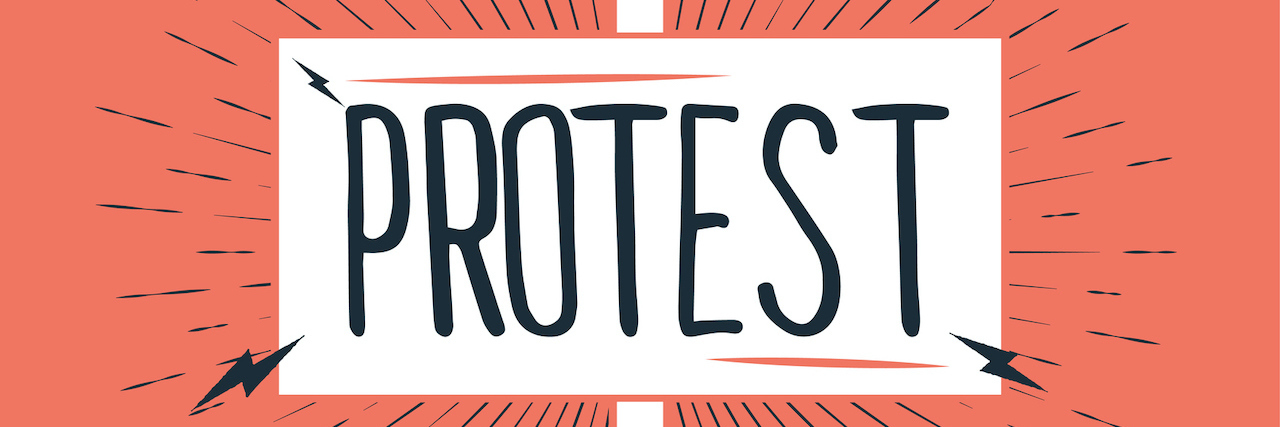Why Disability Advocates Were Wrong to Picket Joe Biden's Home
Editor's Note
This story reflects an individual’s experience and is not an endorsement from The Mighty. We believe in sharing a variety of perspectives from our community.
On October 17, ADAPT, a disability justice organization which has participated in direct action on behalf of disability rights for decades and has gained key civil liberties for disabled people, protested outside Democratic nominee Joe Biden’s home in Delaware. ADAPT has grown frustrated in the Biden campaign’s silence about its pleas to cosponsor the Disability Integration Act, a bipartisan bill that would guarantee access to long-term services and supports so disabled people may live in the community, not in institutions. ADAPT’s actions were met with pushback from online advocates in the Disability Twitter community because they felt they were unhelpful.
While Biden’s disability rights proposal is far from perfect, I disagree with ADAPT’s picket because I believe it was unstrategic, lacked pragmatism and did not have the support of disability justice advocates like those online on Twitter. It is true that tactics like civil disobedience have won ADAPT and the disability community at large transportation access and have prevented the repeal of the Affordable Care Act. In the latter case, direct action was successful because the American public witnessed the fundamental injustice of overzealous Capitol police chaining disability activists to their wheelchairs for the “crime” of demanding healthcare. To the contrary, ADAPT’s protest on Saturday was ineffective, in part because it was insulated from the center of American political power in Washington, D.C., where it could have gained media attention.
I concur that Biden should strive for more than the middling disability plan he put forward last summer. That being said, I believe the advocates on Disability Twitter who feel that ADAPT should be more pragmatic with its direct action are correct. Although the Biden plan was nonexistent in the Democratic primary, it did materialize in the general election, unlike Donald J. Trump, who to date has put forth no disability policy at all. Electoral pragmatism is a necessity, given that the Disability Integration Act has no chance of passing this legislative session and considering the many threats that a second Trump term would mean for disability rights — including nominating more right-wing Supreme Court Justices who won’t commit to the constitutionality of either Medicare or the Affordable Care Act, such as Amy Coney Barrett.
For an ADAPT action to be successful, it must be supported by the community it claims to represent. Although dissension among disability rights activists is inevitable, civil rights groups must be responsive to their constituents as a whole to authentically advocate for social justice. Since the disability community was a major stakeholder in the Affordable Care Act, disability justice advocates could band together with ADAPT activists pursuing direct action for long-term services and supports under Medicaid. To the contrary, as can be inferred from the commentary on Disability Twitter, the possibility of passing the Disability Integration Act would occur after Biden’s election, making this ADAPT action irrelevant at best and counterproductive at worst.
While ADAPT is a worthwhile organization that has secured crucial healthcare and transportation rights for the disability community over several decades, it should focus on tactics that will gain the sympathy of both online disability rights activists and the wider public, and that are strategic and pragmatic enough to impact American political discourse and the public policy debate. With the goal of aiding disabled civil liberties to a greater extent, ADAPT ought to supplement traditional pressure on Joe Biden’s campaign with nonviolent direct action should he be elected President. To do anything more may cement ADAPT in the Biden camp’s mind as a hostile organization, rather than a partner in achieving disability justice in the U.S.
Getty image via dickcraft

